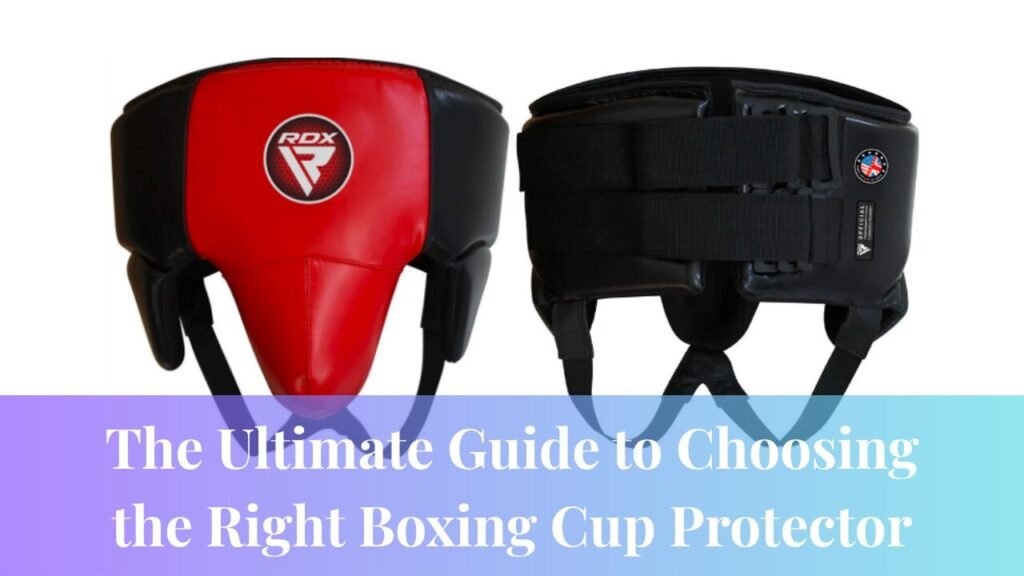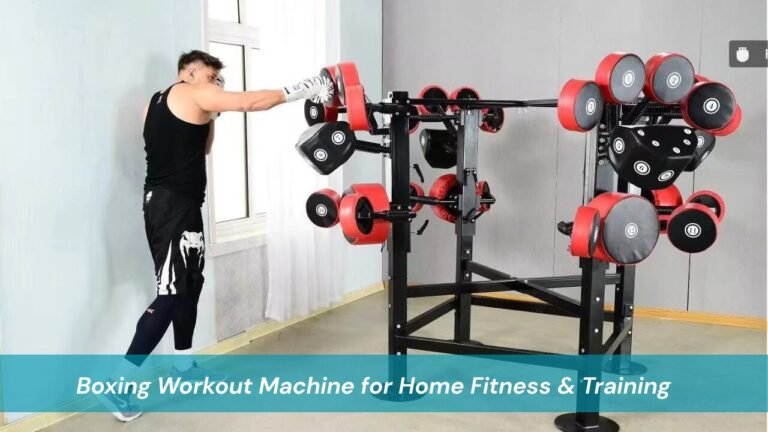When stepping into the ring, every fighter knows the importance of protective gear. One of the most essential, yet often overlooked, pieces of equipment is the boxing cup protector. Designed to shield a vulnerable area of the body, a high-quality groin guard is not just about comfort it’s about safety, performance, and confidence. Whether you’re a beginner or a seasoned professional, understanding how to choose the best boxing cup protector can significantly impact your training and in-ring performance.
Why a Boxing Cup Protector Is Essential
In combat sports like boxing, MMA, and Muay Thai, groin shots can happen, even if they’re accidental. A reliable boxing cup protector prevents serious injuries, including testicular trauma, internal bleeding, hernias, and long-term reproductive issues. Protecting yourself from these risks allows you to focus fully on technique and performance without the fear of a devastating injury.
Consider the real-world example of professional boxer Juan, who suffered a low blow during a sparring session while wearing a basic, ill-fitting groin guard. The minimal protection led to a painful injury that kept him out of training for weeks. Once he upgraded to a premium boxing cup protector, he not only avoided further incidents but also regained the confidence to spar at full intensity.
Types of Boxing Cup Protectors
There are several types of groin guards available, each designed for specific training styles and personal preferences. Traditional steel cups, usually made of stainless steel, provide maximum protection and are favored by Muay Thai fighters and professional boxers. While they are extremely durable and impact-resistant, they can feel heavy and less comfortable during extended training sessions.
Plastic or polycarbonate cups are another popular choice, offering a balance of protection and comfort. Made from high-impact plastic, they are lightweight and affordable, making them suitable for beginners and amateur boxers. However, they may not withstand extreme pressure like steel options. Compression shorts with integrated cups combine fabric shorts with a built-in plastic cup, providing moderate protection. These are ideal for fitness boxing, cardio boxing, or light sparring, as they are comfortable and easy to wear but less protective for intense competition.
Key Features to Look For in a Boxing Cup Protector
The quality of materials used in a boxing cup protector plays a significant role in its durability and safety. Steel and high-grade polycarbonate are the top choices for withstanding repeated impacts without deforming. Comfort and fit are equally important—your groin guard should remain securely in place without shifting, which can be achieved through adjustable straps or compression-fit designs.
Breathability is another consideration, especially if you train in hot or humid conditions. Models with ventilation features help maintain comfort during long sessions. Ease of cleaning should not be overlooked; removable cups and washable fabric components make maintenance much simpler. Lastly, brand reputation matters—opting for well-reviewed, trusted brands increases the likelihood of getting reliable, long-lasting protection.
Top Recommended Boxing Cup Protectors
In 2025, several boxing cup protectors have earned strong reputations among athletes. The Ringside Gel Shock Steel Cup Protector, with gel padding and a steel core, offers unmatched professional-grade protection and has received high praise from users. The RDX F6 Groin Protector, made from Maya Hide leather and a polycarbonate cup, is known for being lightweight, comfortable, and well-finished. The Shock Doctor Core Compression Short with Cup provides an all-in-one comfort and protection option for light sparring, combining compression fabric with a bioflex cup.
These options cater to different needs, whether you require maximum defense for professional bouts or a lighter, more comfortable choice for casual training. Choosing the right one depends on your fighting style, training intensity, and personal comfort preferences.
How to Choose the Right Fit
Selecting the correct size and fit is crucial for ensuring both comfort and protection. Most boxing cup protectors are sized according to waist measurements, ranging from small to extra-large. Measuring your waist accurately will help you start with the right size. It’s important to try the protector on with your boxing gear, moving around to test its stability and comfort.
If adjustments are needed, use velcro straps or lace systems to achieve a secure hold. A properly fitted groin guard should feel snug without being restrictive, allowing for full mobility during training and matches.
How to Maintain and Extend the Life of Your Cup Protector
A well-maintained boxing cup protector can last through hundreds of training sessions and matches. Cleaning it after every session is essential to prevent bacterial buildup, which can cause unpleasant odors and even infections. Storing it in a dry, cool place helps prevent material degradation over time.
Avoid sharing your groin protector with others, as this increases the risk of transferring bacteria. Inspect your gear regularly for signs of wear, such as cracks or loose stitching, and replace it if you notice any damage. Treating your protective gear with the same care you give your gloves or headgear ensures it remains effective.
The Science Behind Impact Absorption
Modern boxing cup protectors incorporate advanced material science to maximize safety. Many use multi-layer foam padding and gel inserts to disperse impact force. The hard outer shell, often made of steel or polycarbonate, spreads the impact across a wider surface area, reducing the risk of injury to vital regions.
Research from the American Journal of Sports Medicine has shown that athletes who wear certified groin protectors report significantly fewer injuries up to 70% less compared to those who go without or use low-quality options. This data underscores the importance of investing in protective gear that has been tested and proven effective.
Comparing Popular Options
Different brands and models cater to various needs and budgets. Ringside’s steel and gel padding models offer maximum protection but are heavier. RDX’s polycarbonate and leather design strikes a balance between high protection and moderate weight. Shock Doctor’s bioflex cup paired with fabric shorts offers comfort and lighter protection, ideal for low-contact training.
Each choice involves trade-offs between weight, protection level, and cost. Understanding your specific training needs will help you determine which option provides the best balance for you.
Pros and Cons of Using a Boxing Cup Protector
The benefits of wearing a boxing cup protector are clear. It prevents life-altering injuries, improves confidence during sparring, and offers a wide variety of options to suit all budgets. However, some downsides include potential discomfort if the fit is wrong, higher costs for premium models, and the need for consistent cleaning and upkeep.
Despite these minor drawbacks, the protective value far outweighs any inconvenience. Skipping this essential gear for the sake of comfort or cost is never worth the risk.
FAQs
What is the best material for a boxing cup protector?
Stainless steel offers the highest level of protection, but polycarbonate is a good lightweight alternative for less intense use.
Can I use the same cup protector for MMA?
Yes, but ensure it complies with the specific requirements of MMA rules and provides adequate mobility.
How do I clean my groin guard?
Use mild soap and warm water for plastic or steel cups. Machine wash the fabric components if applicable.
How often should I replace my boxing cup protector?
Inspect for cracks or loose stitching regularly. Replace every 12–18 months or sooner if damage is visible.
Are there specific brands recommended by professionals?
Yes, brands like Ringside, RDX, and Shock Doctor are frequently used by amateur and professional athletes.
Is wearing a boxing cup protector mandatory in official matches?
Yes, in most amateur and professional boxing organizations, wearing a groin protector is mandatory. It is a key part of the approved safety gear.
Do boxing cup protectors restrict movement?
When properly fitted, they should not. Modern designs focus on anatomical shape and flexibility to ensure minimal restriction.




